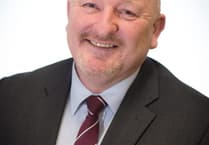The nation is woefully unaware of stroke, and the lifelong impact it can have on Wales’s increasing number of stroke survivors according to new data from the Stroke Association.
Every day in the UK, 240 people of all ages wake up to the impact of stroke unable to move, see, speak, or even swallow.
Stroke is the fourth biggest killer in the UK. Yet new survey results from the Stroke Association, released on World Stroke Day, found that people are worryingly uninformed about stroke and the risk it poses to health as well as long-term quality of life.
The survey found that 69 per cent of people in Wales didn’t know that stroke is the UK’s leading cause of complex adult disability. In fact, nearly two thirds of stroke survivors are left with a disability which is more so than neurological conditions such as Parkinson’s, arthritis or some types of cancer.
In addition, only 16 per cent of those surveyed believe more people die from stroke than survive it, and 16 per cent thought it was impossible to prevent a stroke. Today, more people are having strokes and surviving them and many of Wales’s current 70,000 stroke survivors are living with life changing disabilities.
The survey also found that in the UK only 19 per cent thought stroke survivors need long-term rehabilitation and recovery support with 25 per cent thinking it took six months or less to recover.
Conversely, around 30 per cent of stroke survivors said their recovery took longer than expected or that the process was worse than they thought, and they didn’t recover as much as they had hoped.
When asked about the Welsh Government’s support for stroke survivors, 42 per cent felt it was insufficient, while 18 per cent were unsure what support was currently available. When invited to share what more could be done, half of respondents called for longer rehabilitation support, 45 per cent highlighted the need for better mental health services, 60 per cent wanted increased funding for stroke care, and 80 per cent urged for 24/7 access to life-saving treatments such as thrombectomy.
Many stroke survivors need long-term robust support to recover and live well. The Stroke Association is concerned that too many people are missing out on this support from the point of diagnosis, including a vital six-month review to assess ongoing needs.
Data from the Sentinel Stroke National Audit Programme for April 2024-March 2025 found that only 35.1 per cent of patients had a vital six-month review, the lowest in six years.
Katie Chappelle, Associate Director for Wales, Stroke Association, said: “Stroke changes a person’s life in an instant, with far-reaching repercussions for many. These shocking survey results also come at a time when stroke treatment and ongoing care in Wales are in a poor state ranking 22nd out of 26 of the world’s most developed countries for stroke care, behind England and Wales which is in 12th place.
“Treatment, including a clot-removing thrombectomy, which saves lives and reduces disability, doesn’t even reach half of the eligible patients. Rehabilitation support is limited and rarely provided at the dose and intensity needed. That’s why the Stroke Association is urging the Welsh Government to make stroke care a priority.
“This means taking a fresh look at how people affected by stroke are treated and supported, from emergency care through to rehabilitation, six-month reviews and life after stroke and they want to see this commitment embedded in the Welsh Government’s next Programme for Government, delivering on its promise to transform stroke services.
“We’re calling for better national planning, specialist stroke centres that can treat emergencies 24/7 and support recovery, and for stroke survivors and their families to be directly involved in shaping the future of stroke care.”
When retired ambulance worker Peter Perkins, 68, from Amlwch, Anglesey had a stroke in November 2022, he immediately recognised the signs, but nothing could prepare him for the long road to recovery that followed.
Peter’s stroke left him with no movement on his left side.
“I couldn’t walk, dress myself, or even cut my own food,” he said.
“The stroke unit staff was incredible. They pushed me physically and mentally every day, it made all the difference.
“It gave me hope that I could get back to being me, recovery doesn’t stop when you leave the ward. You need continued physio, emotional support, and proper follow-up.”
At his six-month review, Peter was told he had reached the limit of his recovery, something he strongly disagreed with.
“I remember thinking, how can someone else tell me what my limits are? That moment pushed me harder. The review is important, but it needs to be meaningful and backed up with action.”
With the support of Stroke Association coordinator and the National Exercise Referral Scheme, Peter gradually rebuilt his confidence and mobility.
“I’ve learned that asking for help isn’t failing; it’s part of recovery.”
Two years on, Peter continues to make progress.
“Stroke is devastating, but it’s not the end of the world.
“Everyone’s journey is different, but there are positives. There is light at the end of the tunnel, stroke takes away a lot, but the right rehab gives you a way forward.”
“That’s what every stroke survivor in Wales deserves, support for as long as it takes.”
The Stroke Association supports stroke survivors and their families by phone, at home, and in the community. You can find out more on: stroke.org.uk





Comments
This article has no comments yet. Be the first to leave a comment.